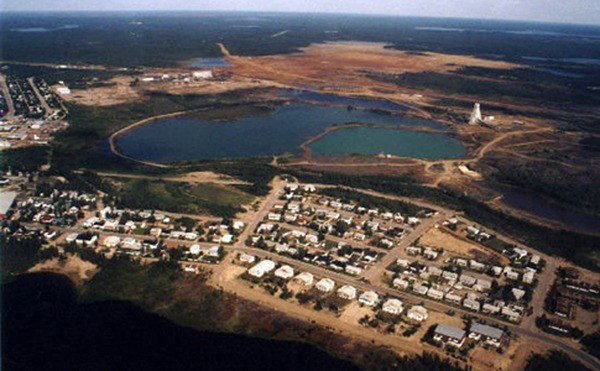Canada’s environment minister approved Alamos Gold’s Lynn Lake Gold Project March 6, deciding that mitigation measures were sufficient to ensure the impact of the mining operation on the environment would not outweigh the benefits.
Alamos plans to use open-pit mining methods to extract up to 8,250 tonnes of ore per day from the historical Gordon and MacLellan gold mines over a 13-year period. The mines are located near the town of Lynn Lake in Manitoba’s northwest region.
“My decision to approve the Lynn Lake Gold Project was informed by a thorough federal environmental assessment based on scientific evidence and Indigenous knowledge,” said federal Environment and Climate Change Minister Steven Guillbeault in a news release. “I am confident the strong legally binding conditions established for the project will safeguard the environment and create a sustainable path forward."
The minister’s approval came with 177 conditions that Alamos Gold must meet, including measures to protect woodland caribou, water quality and the health and socio-economic conditions of Indigenous residents fo the area.
Site clearing activities must take place outside of the woodland caribou’s calving and calf-rearing period and avoid the destruction of their habitat. Alamos must also contribute to habitat restoration initiatives, including a collaring program by Manitoba’s Natural Resources and Northern Development department, and the company is also responsible for following up to verify the effectiveness of the project’s mitigation measures related to woodland caribou.
Alamos said it has also been issued provincial Environment Act licences for the MacLellan and Gordon sites.
“Achieving both of these important regulatory milestones for the Lynn Lake Gold Project represents a multi-year, collaborative effort by our team and our commitment to environmental sustainability,” said Alamos CEO John McCluskey, “Lynn Lake is a significant opportunity to drive the future growth of our business in Canada, with the potential to increase our annual production to approximately 800,000 ounces of gold per year.”
The project is expected to result in more than 400 jobs during both its construction and operational stages.
“There’s jobs [in Lynn Lake] but there’s not enough jobs for everybody that lives there so hopefully this is something that, once it comes in, it’ll provide everybody an opportunity,” Alamos training co-ordinator Holly Martin told the Thompson Citizen at a Thompson job fair last October. Although the goal is to train local people to do many of the jobs, skilled positions like heavy equipment operators and truck drivers can be tough to fill locally, especially given a shortage of services people in larger communities take for granted. It’s been several years since Lynn Lake had a functioning childcare facility, Martin pointed out.
Alamos plans to spend $5 million on the Lynn Lake Gold Project in 2023, including 8,000 metres of drilling, and to evaluate and advance a pipeline of prospective exploration targets within the 58,000-hectare project area.
13 Indigenous groups were consulted by the Impact Assessment Agency of Canada during the environmental approval process and more than $730,000 was made available to ensure Indigenous groups had the chance to participate in various stages of the review process.
“Today's decision is good news for workers in Manitoba and thanks to an efficient and effective federal environmental assessment, it is also good news for the protection of important habitats and biodiversity,” said federal Natural Resources Minister Jonathan Wilkinson. “The development of Canada's vast resources can, and must, be done in a manner that is science aligned and respects our environment."




